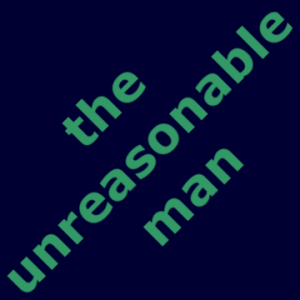
80s action movie taglines notwithstanding, crime is not a disease. So why is there a push by prohibitionists to have the CDC researching it and to treat violent crime as a "public health crisis"? (And never mind the fact that the homicide rate is about one-half what it was 20 years ago, which makes for an interesting notion of "crisis".)
It's because criminologists keep getting the "wrong" answer about gun control, while in the 1970s the American public health community explicitly adopted a gun control objective, and has been spinning the science ever sense. It's denialism at its finest: the relevant science hasn't given you the findings you want so you apply the methods of an irrelevant science that give you the answer you want.
This 1994 piece from the Tennessee Law Review lays it out well. Two decades later it's the same old song all over again.
GUNS AND PUBLIC HEALTH: EPIDEMIC OF VIOLENCE OR PANDEMIC OF PROPAGANDA? (www.guncite.com)
Since the 1960s, health advocate sages have written a vast and ever-increasing amount of anti-gun advocacy literature. But the view thus promulgated is strikingly different from the view concurrently emerging from criminological research and scholarship. The divergence was not as clear twenty-five to thirty years ago as it is today. In the 1960s, criminological opinion was dominated by writers who felt more or less as the anti-gun health advocacy writers do today. As two of the most influential of those 1960s writers subsequently admitted: "In the 1960s, there was literally no scholarship on the relationship between guns and violence and the incidence or consequences of interpersonal violence, and no work in progress."
Serious criminological research began in the 1970s and has been pursued more intensively and extensively ever since. The results of that research may surprise lay persons, given the exposure which the popular press has accorded the anti-gun health advocacy literature....
Scholars engaged in serious criminological research into "gun control" have found themselves forced, often very reluctantly, into four largely negative propositions. First, there is no persuasive evidence that gun ownership causes ordinary, responsible, law abiding adults to murder or engage in any other criminal behavior--though guns can facilitate crime by those who were independently inclined toward it. Second, the value of firearms in defending victims has been greatly underestimated. Third, gun controls are innately very difficult to enforce.
The difficulty of enforcement crucially undercuts the violence-reductive potential of gun laws. Unfortunately, an almost perfect inverse correlation exists between those who are affected by gun laws, particularly bans, and those whom enforcement should affect. Those easiest to disarm are the responsible and law abiding citizens whose guns represent no meaningful social problem. Irresponsible and criminal owners, whose gun possession creates or exacerbates so many social ills, are the ones most difficult to disarm. A leading English analyst's pessimistic view has been summarized as follows: "[I]n any society the number of guns always suffices to arm the few who want to obtain and use them illegally ...."
Therefore, the fourth conclusion criminological research and analysis forces on scholars is that while controls carefully targeted only at the criminal and irresponsible have a place in crime-reduction strategy, the capacity of any type of gun law to reduce dangerous behavior can never be more than marginal.
...
In stark contrast to this nuanced, sophisticated assessment, the spirit animating the health advocacy literature on firearms is illuminated by the frank admission of one outspoken advocate of its political agenda, Dean Deborah Prothrow-Stith of the Harvard School of Public Health: "My own view on gun control is simple. I hate guns and I cannot imagine why anyone would want to own one. If I had my way, guns for sport would be registered and all other guns would be banned." A review of the anti-gun health advocacy literature suggests that such unconstrained, unabashed emotive bias helps account for many of its anomalies and for the remarkable difference in tone and conclusion from the criminological scholarship on firearms issues.